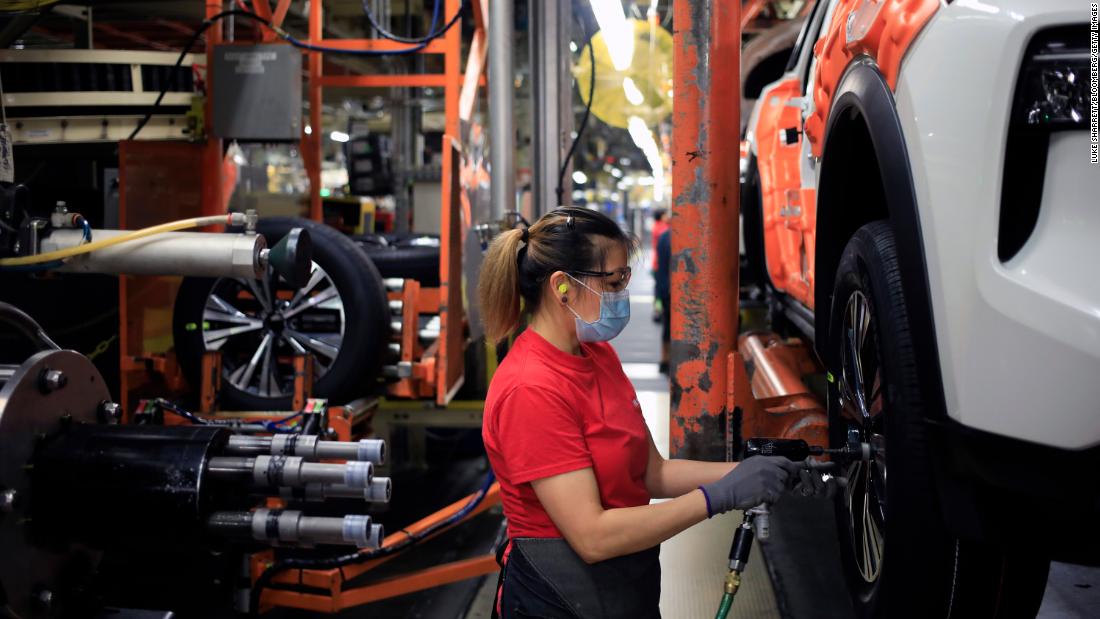A lack of computer chips has plagued the industry, but that’s not the only issue automakers face
Industry experts say automakers are having trouble getting all manner of parts and raw materials for a variety of reasons, including Covid-related plant shutdowns by suppliers, logistical problems involving shortages of ships, shipping containers and truck drivers, and difficulty that some suppliers are having filling jobs.
Chips “are just one of a multitude of extraordinary disruptions the industry is facing — including everything from resin and steel shortages to labor shortages,” said Mark Wakefield, global co-leader of the automotive and industrial practice at industry consultant AlixPartners. “There’s no room for error for automakers and suppliers right now.”
Plus, the lost sales from not building those vehicles will cost the automakers about $210 billion this year, according to AlixPartner’s latest estimates. That’s nearly twice the firm’s $110 billion estimate from May.
Those lost sales will be only partly offset by higher prices, which will bring in an additional $90 billion in revenue on the vehicles that are sold. But the automakers will also have to pay $150 billion in increased parts and raw material costs, or roughly $2,000 per vehicle.
All told the industry will take a net $270 billion hit from the various shortages, according to AlixPartners’ estimates, while car buyers will pay $90 billion in higher prices.
Supply chain reaction
Microchip supply had been widely expected to bottom out in the second quarter of this year, and then start to improve. But a surge in Covid-19 cases caused a new round of shortages, as chip plants were forced to temporarily shut down in some hard-hit countries, such as Malaysia.
In the meantime supplies of other key materials have also dried up.
“It’s not just the chip shortage. Just about every industry … is dealing with some kind of supply chain issue,” said Cindy Jaudon, regional president for the Americas at IFS, a global enterprise software company. “Our ports are extremely full. Paint manufacturers are struggling with titanium dioxide. They layer on top of each other.”
And there is little relief in sight.
“There really are no shock absorbers left in the industry right now when it comes to production or obtaining material,” said Dan Hearsch, a managing director at AlixPartners. “Virtually any shortage or production interruption in any part of the world affects companies around the globe, and the impacts are now amplified due to all the other shortages. “
![]()


